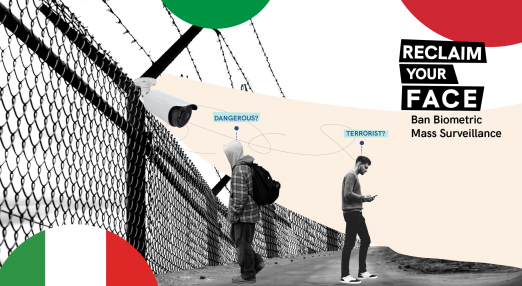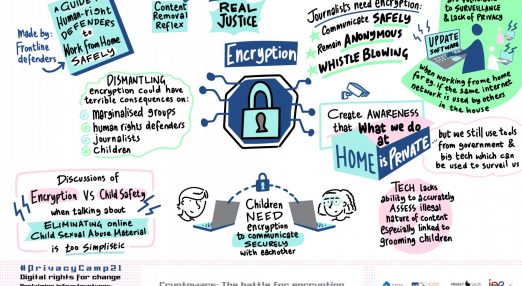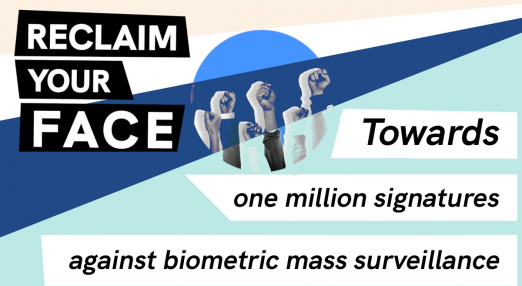Surveillance and data retention
Filter resources
-

Chilling use of face recognition at Italian borders shows why we must ban biometric mass surveillance
As part of Reclaim Your Face's investigation in rights-violating deployments of biometric mass surveillance, EDRi member Hermes Center explains how the Italian Police are deploying dehumanising biometric systems against people at Italy’s border.
Read more
-

Huawei captures Balkan’s hearts and minds
EDRi member Citizen D reveals Huawei's lobbying practices in Slovenia, where media outliets are siding with the Chinese tech company, whilst ignoring the company's human rights violations in China and the development of a city surveillance system in Belgrade.
Read more
-

Wiretapping children’s private communications: Four sets of fundamental rights problems for children (and everyone else)
On 27 July 2020, the European Commission published a Communication on an EU strategy for a more effective fight against child sexual abuse material (CSAM). As a long-term proposal is expected to be released by this summer, we review some of the fundamental rights issues posed by the initiatives that push for the scan of all private communications.
Read more
-

12 benchmarks for the reform and oversight of intelligence services in Austria
EDRi member epicenter.works presents the benchmarks against which the new reform of the Austrian Federal Agency for State Protection and Counterterrorism must be measured. With these criteria, guided strongly by international standards and jurisdiction, epicenter.works expect the legislative proposals on the reform in the next few weeks, ready to defend fundamental human rights.
Read more
-

How to Reclaim Your Face From Clearview AI
The Hamburg Data Protection Authority deemed Clearview AI’s biometric photo database illegal in the EU as a result of a complaint Matthias Marx, a member of the Chaos Computer Club (an EDRi member) filed.
Read more
-

#PrivacyCamp21: Event Summary
The theme of the 9th edition of Privacy Camp was "Digital rights for change: Reclaiming infrastructures, repairing the future" and included thirteen sessions on a variety of topics. The event was attended by 250 people. If you missed the event or want a reminder of what happened in the session, find the session summaries below.
Read more
-

Polish law on “protecting the freedoms of social media users” will do exactly the opposite
EDRi member Panoptykon Foundation carefully analyses the Polish law on “the protection of freedoms of social media users” which turns out to introduce data retention, a new, questionable definition of “unlawful content”, and an oversight body that is likely to be politically compromised.
Read more
-

EU Terrorist Content Online Regulation Could Curtail Freedom of Expression across Europe
Counter-terrorism laws that have continued to pile up in the past years in Europe have constantly eroded the rule of law and reinforced executive powers of the state to the detriment of judicial oversight.
Read more
-

ReclaimYourFace activates the public and civil society to ban biometric mass surveillance
The EDRi network and partners launched the first phase of the Reclaim Your Face campaign, which focuses on raising awareness and investigating and challenging abusive uses of facial recognition and other biometric tech at a local and national level, in November 2020. The coalition has achieved several wins in the two months since. However much remains to be done in the movement to reclaim our faces and ban biometric mass surveillance in Europe!
Read more
-

La Quadrature du Net asks for renewed support to challenge TERREG in France
In light of the European Parliament's vote on the Regulation to prevent the dissemination of said “terrorist content”, EDRi observer La Quadrature du Net (LQDN) sheds light on some of the most concerning provisions which have to be addressed before the final adoption of the regulation.
Read more
-

Data retention concerns resurfaces in Norway
EDRi member, EFN expresses serious concerns regarding the changes to the Norwegian Electronic Communications Act proposed by the Norwegian government.
Read more
-

When the police’s IT-systems are not in order, everyone loses
Without the trust of citizens, the police cannot do their job properly. That is why it is important that the police are extremely careful with citizens' data. But an analysis by EDRi member Bits of Freedom shows that of all 36 'mission critical' systems of the police, not one complies with the rules on privacy and information security.
Read more
